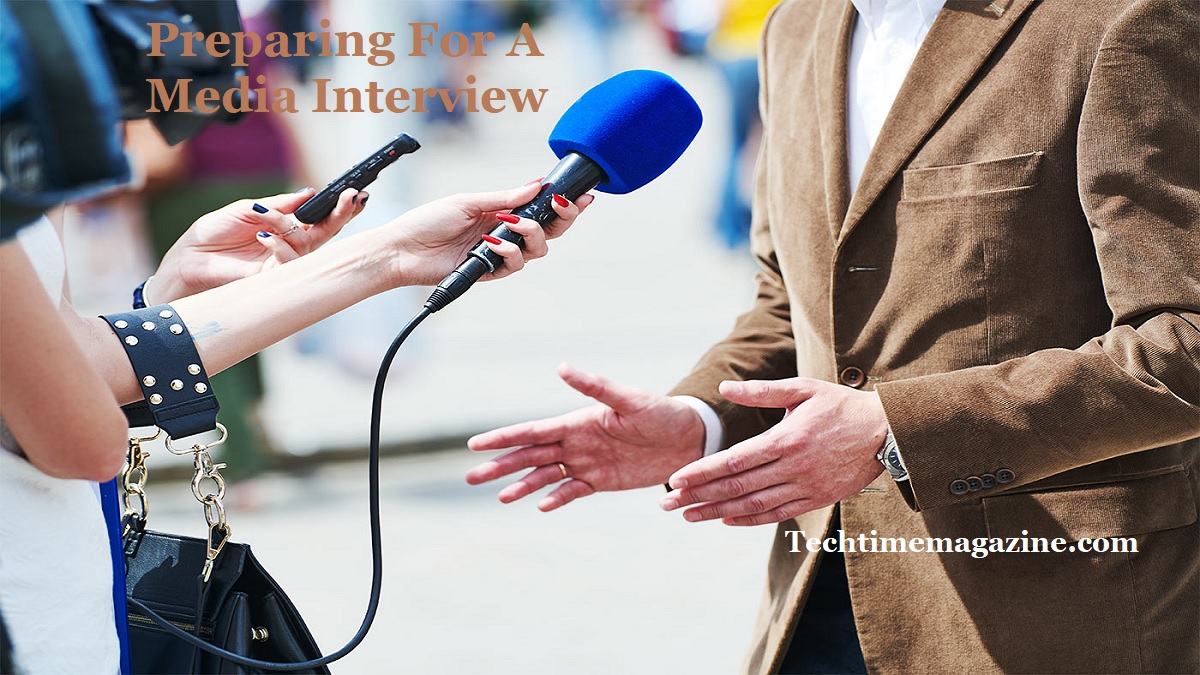Preparing for a media interview involves a scientific and strategic approach to ensure powerful communication, manage perceptions, and convey key messages appropriately. It is a procedure through which people or spokespersons prepare themselves for interactions with reporters, journalists, or media retailers. The aim is to navigate the interview with confidence, provide treasured statistics, and give a fine picture to the general public.
Preparing For A Media Interview
Here Are The Key Components of Getting Preparing For A Media Interview:
In the dynamic realm of media interactions, facing an interview can be both exhilarating and hard. Whether you are a seasoned professional or a newbie getting into the spotlight, the key to a successful media interview lies in meticulous practice and powerful communication. In this comprehensive manual, we delve into the critical strategies and competencies to empower you to grasp the art of powerful verbal exchange and navigate media interviews with confidence.
Research:
The basis of any hit media interview is the intensive expertise of the interviewer, the media outlet, and the target market. Research the journalists beyond work, the tone of the guide, and the demographic it caters to. Tailoring your message to align with their fashion and target audience ensures that your verbal exchange resonates correctly.
Define Your Key Messages:
Crafting concise and compelling key messages is fundamental to effective conversation in media interviews. Identify the important points you want to carry and shape them in a manner that is clean, memorable, and aligned with your common conversation desires. These messages serve as the spine of your interview approach, presenting a roadmap for your responses.
Anticipate and Prepare for Tough Questions:
Book Publicist For Hire – Media interviews regularly involve hard questions that require thoughtful responses. Anticipate capacity areas of inquiry and prepare responses that deal with those issues. While you cannot expect every query, having a fixed set of well-concept responses allows you to navigate difficult terrain with grace and self-belief.
Practice Active Listening:
Effective communication is a two-way road, and energetic listening is an essential aspect. Pay close attention to the interviewer’s questions, ensuring that your responses straight away deal with their inquiries. Acknowledge their points, and use your responses as a possibility to have interaction in a sizeable verbal exchange.
Hone Your Non-Verbal Communication:
It’s now not pretty much what you’re pronouncing; the way you say it topics. Non-verbal cues, such as frame language, facial expressions, and tone of voice, play a huge function in conveying your message. Practice retaining a non-violent and composed demeanour, as it fosters an environment of credibility and professionalism.
Utilize Bridging Techniques:
Bridging techniques are treasured pieces of equipment for steering the communication returned in your key messages. Whether acknowledging the question after which transitioning or the use of terms like “what is most important to recognize is,” these techniques help you maintain control over the narrative and make certain that your key messages are effectively communicated.
Embrace Simplicity In Your Language:
Avoid jargon and overly complicated language. Speak in a manner that is accessible to your supposed target audience. Clear and easy communication not only complements expertise but also establishes a reference to your target audience, fostering engagement and receptivity.
Conduct Mock Interviews:
Simulate the interview surroundings through mock interviews. Enlist the help of a colleague or conversation educator to pose hard questions and provide optimistic remarks in your responses. This practice not only sharpens your communique capabilities but also builds confidence in managing a diffusion of interview scenarios.
Stay Calm Under Pressure:
Media interviews can be high-stress conditions; however, keeping composure is important. Practice rest techniques, along with deep respiration, earlier than the interview. Remember that it’s ok to pause and acquire your mind if you wish. A calm demeanour now not only complements your credibility but also guarantees more powerful communication.
Seek Professional Media Training:
For those searching for a deeper degree of guidance, expert media schooling may be immensely useful. Media running shoes offer customized guidance, positive comments, and valuable insights into effective communication techniques particular to media interactions. This investment in talent development can extensively enhance your ability to navigate interviews effectively.
Preparing for a media interview is a dynamic and ongoing process. By investing time and effort into research, message development, and practice, people can maximize their potential to navigate interviews efficiently, speak key messages efficiently, and leave a fine and lasting impact on the audience.
Conclusion: Mastering the Art of Effective Communication in Media Interviews
In the short-paced international world of media interviews, effective communication is the linchpin of success. By undertaking thorough studies, defining key messages, anticipating hard questions, training lively listening, honing non-verbal communique, utilizing bridging techniques, embracing simplicity in language, accomplishing mock interviews, staying calm under stress, and looking for professional media education, you equip yourself with the tools needed to grasp the artwork of effective communique.
Remember, preparing for a Media Interview is a chance to deliver your message, form perceptions, and establish yourself as a reputable and articulate spokesperson. With diligent preparation and a focus on refining your verbal exchange capabilities, you may hopefully navigate the challenges of media interactions and leave an enduring positive impression on your target audience.

